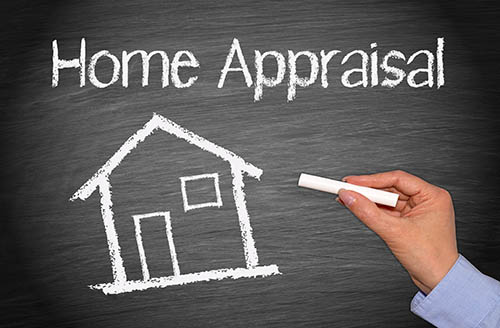 A mortgage broker can be a helpful tool in finding the right opportunity for you, but it can be tempting to deal with mortgage apps that may be able to consolidate all the information you need in one place. While many modern apps can be quite convenient, there are a few reasons you may want to use a knowledgeable mortgage professional to ensure the credibility of your most important purchase.
A mortgage broker can be a helpful tool in finding the right opportunity for you, but it can be tempting to deal with mortgage apps that may be able to consolidate all the information you need in one place. While many modern apps can be quite convenient, there are a few reasons you may want to use a knowledgeable mortgage professional to ensure the credibility of your most important purchase.
Up-To-Date On Credible Lenders
A mortgage app can certainly provide many mortgage insights, but it’s not necessarily an able replacement for a broker who has dealt with many different lenders and knows the ins and outs. While an app can point you in the right direction, a broker will be able to keep you informed of all the little details.
Access To Better Rates
There are no guarantees that working with a broker will get you a better deal, but because brokers work in conjunction with a variety of different lenders, they can often get lower rates or special deals which you may not be able to find on your own.
Saving On Fees
In addition to assisting you with finding the best rates, a broker may also be able to minimize fees like the application and/or appraisal fees so that you can knock some of the costs off your mortgage. Since brokers have an established relationship with lenders, this is something you can use to your advantage.
All The Available Options
It can be overwhelming to go through all of the available lenders, and even a detailed app may not be able to provide this information. However, instead of the most popular current options, a mortgage broker will have lending information available from all kinds of institutions so you can choose what will work best.
Making The Process Run Smooth
An app may seem like a time-saver with all the information at your fingertips, but having a broker to look through things for you can provide a lot of comfort and clarity. While you do have the option of diving in on your own, having an expert to help you over the hurdles can go a long way.
There are so many apps out there that can make life a lot easier, but mortgage apps may not be the place to start when it comes to your mortgage process. If you’re currently considering your options, contact your trusted real estate professional for more information.
 Last week’s economic releases included the National Association of Home Builders’ Housing Market Index along with reports on housing starts, building permits and sales of previously owned homes. Weekly reports on new jobless claims and mortgage rates were also released.
Last week’s economic releases included the National Association of Home Builders’ Housing Market Index along with reports on housing starts, building permits and sales of previously owned homes. Weekly reports on new jobless claims and mortgage rates were also released. There are untold benefits to reusing old household items instead of tossing them. Not only are you reducing your ecological footprint, but you can also save lots of money by recycling what you’ve already bought. Read on for some common items that are easily repurposed.
There are untold benefits to reusing old household items instead of tossing them. Not only are you reducing your ecological footprint, but you can also save lots of money by recycling what you’ve already bought. Read on for some common items that are easily repurposed. It can be a bit of a surprise if your home turns out to be valued at less than the purchase price offered, but this is the type of thing that can occur in an appraisal situation. While this can change everything from your contract to the amount of your down payment if your home has been appraised at less than you envisioned, here are some options you may want to consider.
It can be a bit of a surprise if your home turns out to be valued at less than the purchase price offered, but this is the type of thing that can occur in an appraisal situation. While this can change everything from your contract to the amount of your down payment if your home has been appraised at less than you envisioned, here are some options you may want to consider. According to the National Association of Home Builders, overall builder confidence in housing markets dropped two points in October to an index reading of 63. September’s reading of 65 was the highest posted since the housing bubble peak. Component readings for October’s housing market index were mixed; the reading for builder confidence in market conditions over the next six months rose one point to 72. Builder confidence in current housing market conditions fell two points to 69. Builder outlook for buyer traffic in new home developments over the next six months fell by one point to an index reading of 46.
According to the National Association of Home Builders, overall builder confidence in housing markets dropped two points in October to an index reading of 63. September’s reading of 65 was the highest posted since the housing bubble peak. Component readings for October’s housing market index were mixed; the reading for builder confidence in market conditions over the next six months rose one point to 72. Builder confidence in current housing market conditions fell two points to 69. Builder outlook for buyer traffic in new home developments over the next six months fell by one point to an index reading of 46. It’s often the case that people will opt to postpone home ownership until the best rates are available or it’s a more stable investment, but in an ever-shifting market it may not be the best decision to put such a sizeable investment off. If you’re wondering whether or not you should put off investing in a home, here are some reasons you may want to start putting your time into searching for a home.
It’s often the case that people will opt to postpone home ownership until the best rates are available or it’s a more stable investment, but in an ever-shifting market it may not be the best decision to put such a sizeable investment off. If you’re wondering whether or not you should put off investing in a home, here are some reasons you may want to start putting your time into searching for a home. Last week’s economic news included reports on job openings, retail sales and weekly readings on average mortgage rates and new jobless claims.
Last week’s economic news included reports on job openings, retail sales and weekly readings on average mortgage rates and new jobless claims. Autumn is a popular time for new home buyers to start looking for their first house or condo. But with that down payment looming, everybody could use a bit of help saving up to make that bulk payment a little less intimidating.
Autumn is a popular time for new home buyers to start looking for their first house or condo. But with that down payment looming, everybody could use a bit of help saving up to make that bulk payment a little less intimidating. There are things that everyone shares: the need for food, the search for love, and the intrusion of mice into our homes. But don’t despair! There are several ways to deter and remove mice. Read on to learn about a few of the more well known, if a little out-there, methods.
There are things that everyone shares: the need for food, the search for love, and the intrusion of mice into our homes. But don’t despair! There are several ways to deter and remove mice. Read on to learn about a few of the more well known, if a little out-there, methods. Open houses are a debatable topic with real estate agents. Some say they aren’t necessary in the age of the internet when options can be narrowed online. Others argue that closing yourself off will limit the number of possible buyers.
Open houses are a debatable topic with real estate agents. Some say they aren’t necessary in the age of the internet when options can be narrowed online. Others argue that closing yourself off will limit the number of possible buyers.